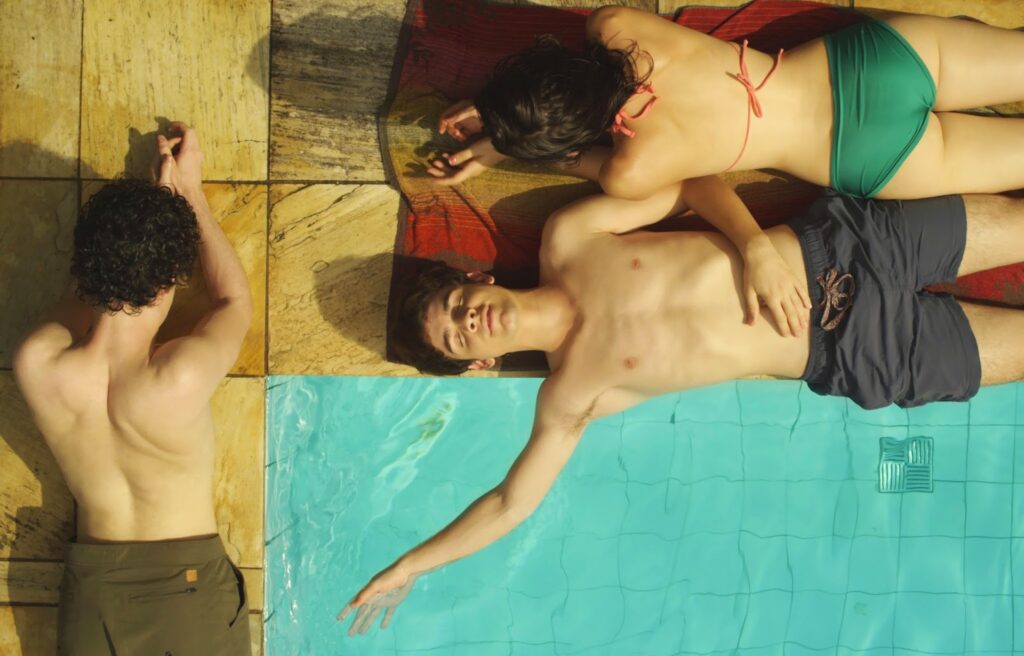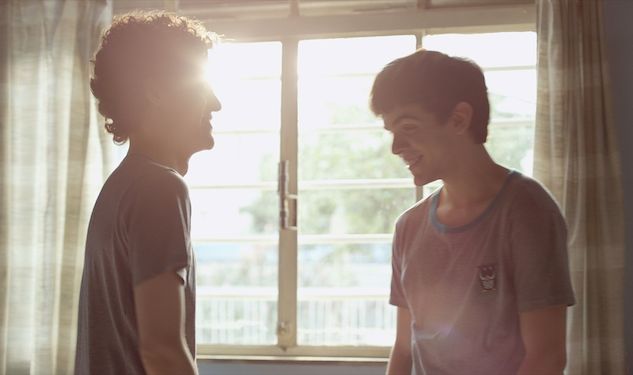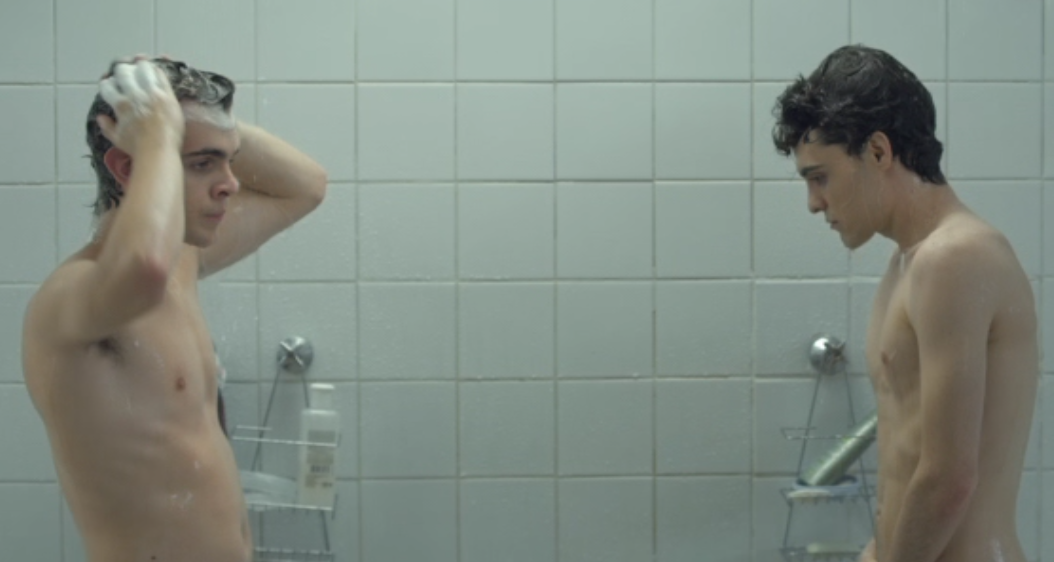Sometimes gay men recognize each other as boys who were once lonely; afraid to say what excited them (or speak to who excited them); and scared to be themselves. This instant recognition—and instant empathy–might be changing as society becomes more accepting of gay humanity but it can also become the basis of solidarity and, in the case of the Brazilian film The Way He Looks, an occasion of deep feeling.
Teenage Leonardo (Ghilherme Lobo) has a female BFF Giovanna (Tess Amorim) but then develops a new crush: Gabriel (Fabio Audi). This could be a standard tale of adolescent romance like John Hughes’ Sixteen Candles except that wide-eyed Leonardo is physically blind. However, though sight-challenged he is specially sensitized to emotions about things he cannot see but feels. And his feelings are natural to him. Plus, he has a bold, heartrending, sense of independence.
Director Daniel Ribeiro avoids making Leonardo one of the world’s neediest cases. The title The Way He Looks has two meanings and neither is ironic: Leonardo has a dark-eyed, curly-haired cuteness easy to fall in like with (Abercrombie & Fitch or the old Joey magazine would pay his modeling fees).

Most importantly, Leonardo sees himself. As a wishful fictional construct of our own youth, he may be a product of this open-tolerance, pro-gay era, but this aspect of personality represents an encouraging cultural fact: The Way He Looks should be a big hit and it should forever dispel the tendency towards self-loathing demonization that ruins so many movies about gays that pretend to be “honest” but simply give in to shame, even when the filmmakers themselves should know better—like Gregg Araki and his unpalatable Mysterious Skin (unmysteriously praised by the unevolved status quo mainstream media).

The Way He Looks represents the birth of gay self-acceptance on the mainstream screen. (If you think this happened already you‘re misreading Hollywood‘s various gay pity parties.) Perhaps that’s why Ribeiro chose a visual style that resembles a birthday card. (This may be the brightest, most existentially ecstatic-looking film since Mike Leigh’s Happy-Go-Lucky.) How Leonardo manages his shaken friendship with Giovanna and negotiates the feelings Gabriel keeps secret is a testament to gay humanity. (Neither Leonardo nor Gabriel have reached what Bronski Beat called “The Age of Consent.”) By uncovering youthful gayness, director Ribeiro and actor Lobo portray the root of compassion. They make coming out a clearly personal instance of human growth.

Though the tone is different, this is a companion piece to François Ozon’s masterly Young & Beautiful, which was about a heterosexual girl’s troubled discovery of erotic feelings (although her seemingly gay younger brother suggested an emotional twin). Ozon made innocence tragic but Ribeiro, by stressing innocence, makes it common and this is the film’s breakthrough. Leonardo demonstrates the self-sufficiency gay men learn as an everyday necessity.
The film displays non-maudlin empathy for a gay youth’s independence and innocence. The Way He Looks succeeds without pity, hypocrisy or puritanical judgment. It marries guiltlessness to goodness.
Via OUT






Be the first to reply